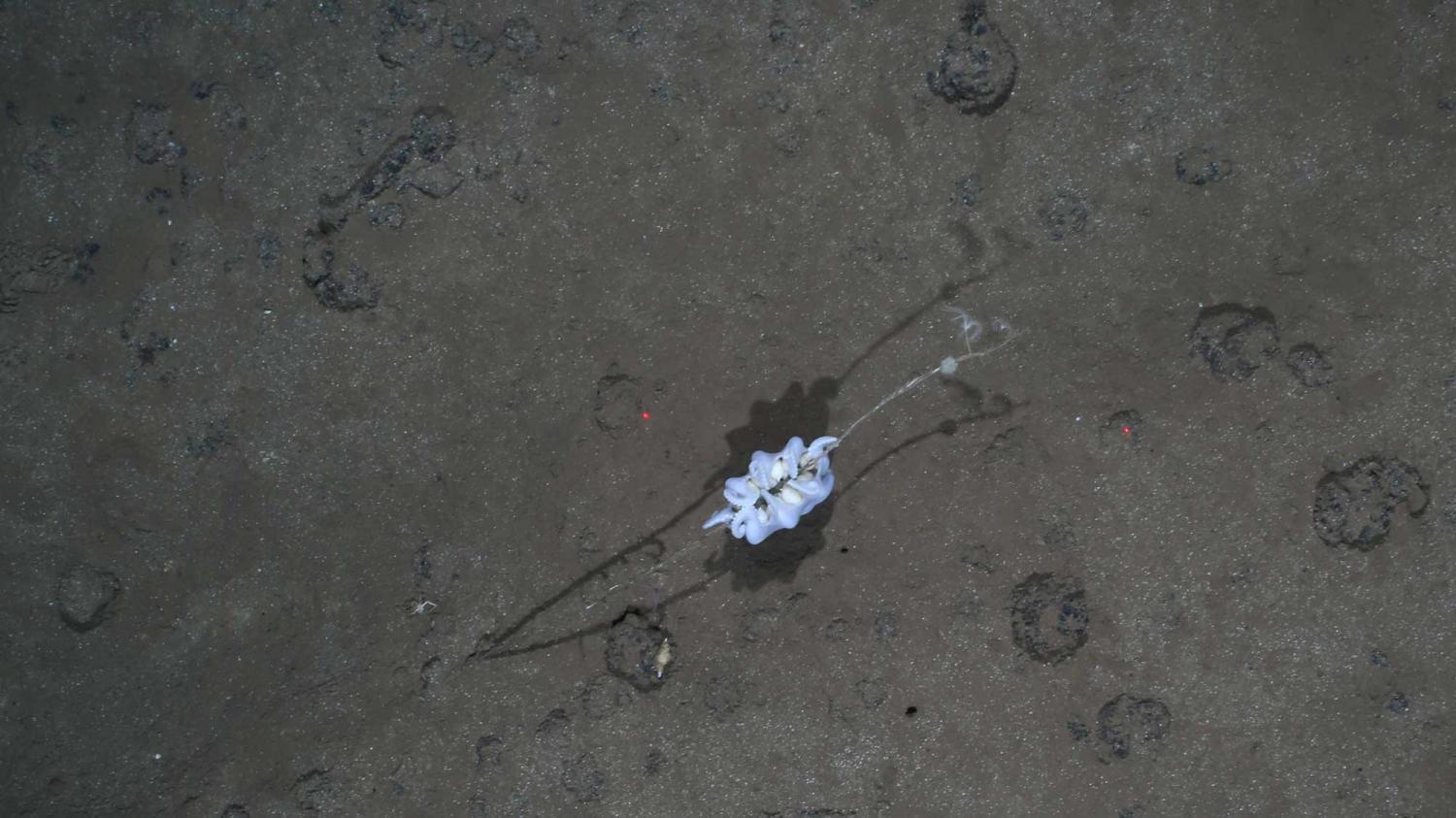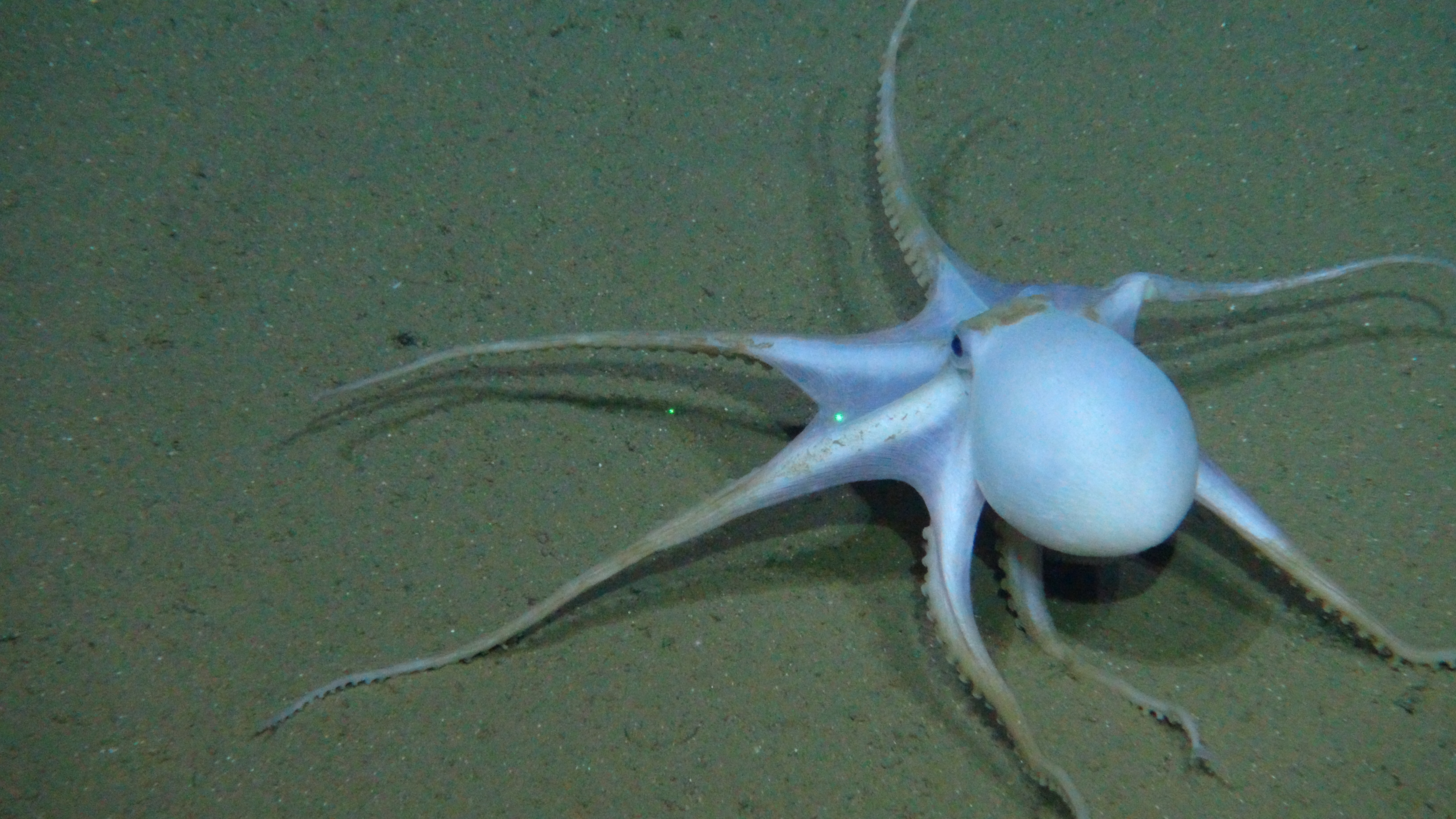Newly found ghost octopods' at risk from deep-sea mining
A recently found deep-sea creature, an octopod dubbed "Casper" after the friendly cartoon ghost, could be seriously affected by seafloor mining as it lays its eggs atop areas that contain valuable metals, scientists say.
According to a study published this week in Current Biology, the mollusc -so freshly discovered that experts haven't even figured out what creature it might be most closely related to - lays its eggs on the dead stalks of sponges, attached to rocky crusts, which are rich in metals like manganese.
The female then protects the eggs as they grow, which may last for a number of years.


Octopod brooding its eggs on the stalk of a dead deep-sea sponge, attached to a manganese nodule. (Image: Alfred Wegener Institute OFOS team 2015.)
"The brooding observation is important as these sponges only grow in some areas on small, hard nodules or rocky crusts of interest to mining companies because of the metal they contain," Autun Purser, of the Alfred Wegener Institute's Helmholtz Centre for Polar and Marine Research in Germany, said in a statement.
"The removal of these nodules may therefore put the lifecycle of these octopods at risk," he added.
Based on observations of nearly 30 of these animals, the researchers also believe that the octopods tend to hang out near the manganese nodules in general-even when they're not breeding-perhaps because their main source of food is somehow associated with the deposits.
Unfortunately, Purser said, "many of the metals contained [in manganese nodules] are 'high-tech' metals, useful in producing mobile phones and other modern computing equipment, and most of the land sources of these metals have already been found and are becoming more expensive to buy."


A deep-sea octopod observed in the deep Peru Basin. (Photo taken by the ROV Kiel 6000 during the Sonne expedition 242).
Meanwhile, the United Nations' International Seabed Authority (ISA) continues supporting the activity. It has so far issued 26 exploration licences to governments and companies, authorizing them to operate in international waters.
Countries including New Zealand, Namibia and Papua New Guinea have also granted licences for seabed mining exploration.
But it is Canada's Nautilus Minerals (TSX:NUS), which is close to open the first polymetallic seabed mine, the one that has attracted most eyeballs and critics to its project. In a deal arranged outside the ISA system, the company overcame several difficulties until it reached an agreement with the Papua New Guinea government in 2014 to move forward with its Solwara 1 gold, copper and silver underwater project, located in the Bismarck Sea. Since then, progress on the project has moved quickly, with mining operations set to begin in 2019.